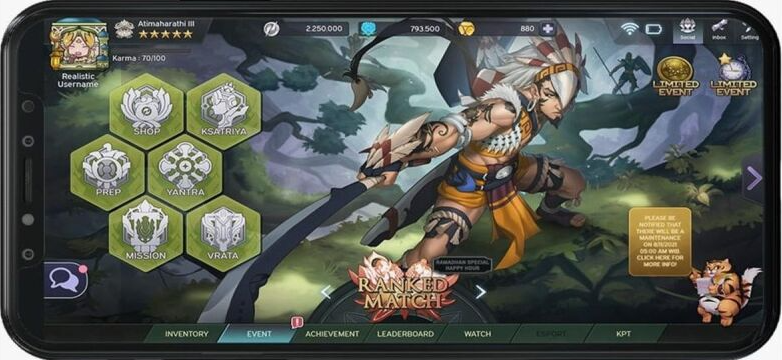
The Indonesian Game Translation Process: Challenges and Solutions
Game translation is an important aspect of the gaming industry that ensures that players from various language backgrounds can enjoy the game to the fullest. This process not only involved the translation of the text but also the cultural and technical adjustments necessary to make the game accessible and enjoyable for Indonesian players. This article will discuss the challenges and solutions in the process of translating games into Indonesian.
Improve Game Localization
Machine translation is well suited for translating real-time communications, as it can process word content quickly. This is especially important in games, where speed matters and machine learning algorithms provide more consistent and accurate readings. In addition to accurate translations, special attention must also be paid to localizing graphics, speech, and sounds so that players can fully immerse themselves, wherever they are. Additionally, machine translation can be used to translate text into images, subtitles, and voiceovers.
It is inevitable that machine translations sometimes miss the mark when it comes to cultural nuances. The solution is to work with a reliable service provider who understands the Asia-Pacific market and the linguistic differences between each country. These errors can then be further minimized through AI and machine learning models, which are continually improving.
Read More: 7 Indonesian Game Translation Mistakes That You Should Avoid
Challenges in the Game Translation Process
1. Text Complexity and Terminology
Game translation often involves very complex text with specialized terminology that may not have a direct equivalent in Indonesian. Technical terms, game jargon, and names of characters or places must be translated carefully so as not to lose their original meaning.
2. Cultural Adjustment
Culture plays an important role in game translation. Some elements in the game may be irrelevant or even considered offensive in the context of Indonesian culture. Cultural adjustments are necessary to ensure that game content conforms to local values and norms.
3. Audio and Visual Synchronization
Apart from text, game translation also involves synchronizing audio and visuals. Translated dialogue must match the character's lip movements, and visual elements such as text in images or videos must also be adjusted. This requires good coordination between the translator and the development team.
4. Technological Limitations
The technology used in game development can be an obstacle in the translation process. Some games have complex systems that are difficult to modify, which makes translation more challenging. Additionally, translation must be done without disrupting game performance or stability.
5. Time and Cost
The game translation process requires significant time and expense. Developers must allocate sufficient resources to ensure that translation is done correctly and on time. Budget constraints and tight deadlines often pose major challenges in this process.
Solutions to Overcome Game Translation Challenges
1. Use of Professional
Using a professional translator who has experience in the gaming industry is an important first step. Experienced translators can understand the complexities of texts and terminology and have the ability to make appropriate cultural adjustments.
2. Collaboration with Cultural Experts
Collaboration with local cultural experts can help in adapting game content to suit Indonesian cultural norms and values. Culture experts can provide valuable input on elements that need to be changed or adjusted for the game to be well received by local players.
3. Use of Modern Translation Tools
Modern translation tools, such as automatic translation software and translation tools, can help speed up the translation process and increase accuracy. While these tools cannot replace human translators, they can be a useful addition in dealing with large volumes of text.
4. Testing and Feedback
Once the translation is complete, thorough testing must be performed to ensure that all game elements function properly and fit the cultural context. Developers can involve local players in the testing process to get valuable feedback on translation quality.
5. Team Training and Development
Training and developing a team of translators and developers is an important investment to improve the quality of game translation. Training on game terminology, cultural adjustments, and translation technology can help teams work more efficiently and effectively.
Case Study: Translation of Popular Games into Indonesian
One successful example of game translation into Indonesian is the game Mobile Legends: Bang Bang. This game is very popular in Indonesia and has been well translated into Indonesian, including text, dialogue, and other visual elements. The success of this translation has helped the game reach a large player base in Indonesia and receive positive reviews from local players.
Benefits of Quality Game Translation

1. Improved Player Experience
Quality game translation can enhance a player's experience by ensuring that they can understand and enjoy every aspect of the game. This can also increase player engagement and their satisfaction with the game.
2. Market Expansion
By translating games into Indonesian, developers can reach more players in Indonesia and increase their sales in this market. Well-translated games tend to be more successful in local markets because they are more accessible and enjoyable for players.
3. Reduction of Complaints and Refunds
Good translation can reduce the number of complaints and refund requests from players. Players who are satisfied with their gaming experience are less likely to file complaints or request refunds, which can save developers time and resources.
4. Increase Reputation
A well-translated game can improve a developer's reputation in the eyes of local players. Developers who show attention to the needs and preferences of local players are more likely to gain the support and loyalty of the player community. The process of translating games into Indonesian has complex challenges, ranging from technical terminology to cultural adjustments. However, by using professional translators, modern translation tools, and collaborating with cultural experts, developers can overcome these challenges and produce quality game translations.
The benefits of good game translation are enormous, including improved player experience, market expansion, reduced complaints, and increased reputation. Therefore, investing in a proper game translation process is an important step for developers who want to be successful in the Indonesian market. By understanding and overcoming the challenges in the translation process, developers can ensure that their games are well received and enjoyed by Indonesian players, thereby opening up new opportunities for success in the global gaming industry.
If you are looking for game localization services, Digital-Trans Asia is the most appropriate choice. Here, we will provide services according to your needs, especially for game localization. We will help you expand the game market that you are developing globally and internationally. Please consult with us to learn more.